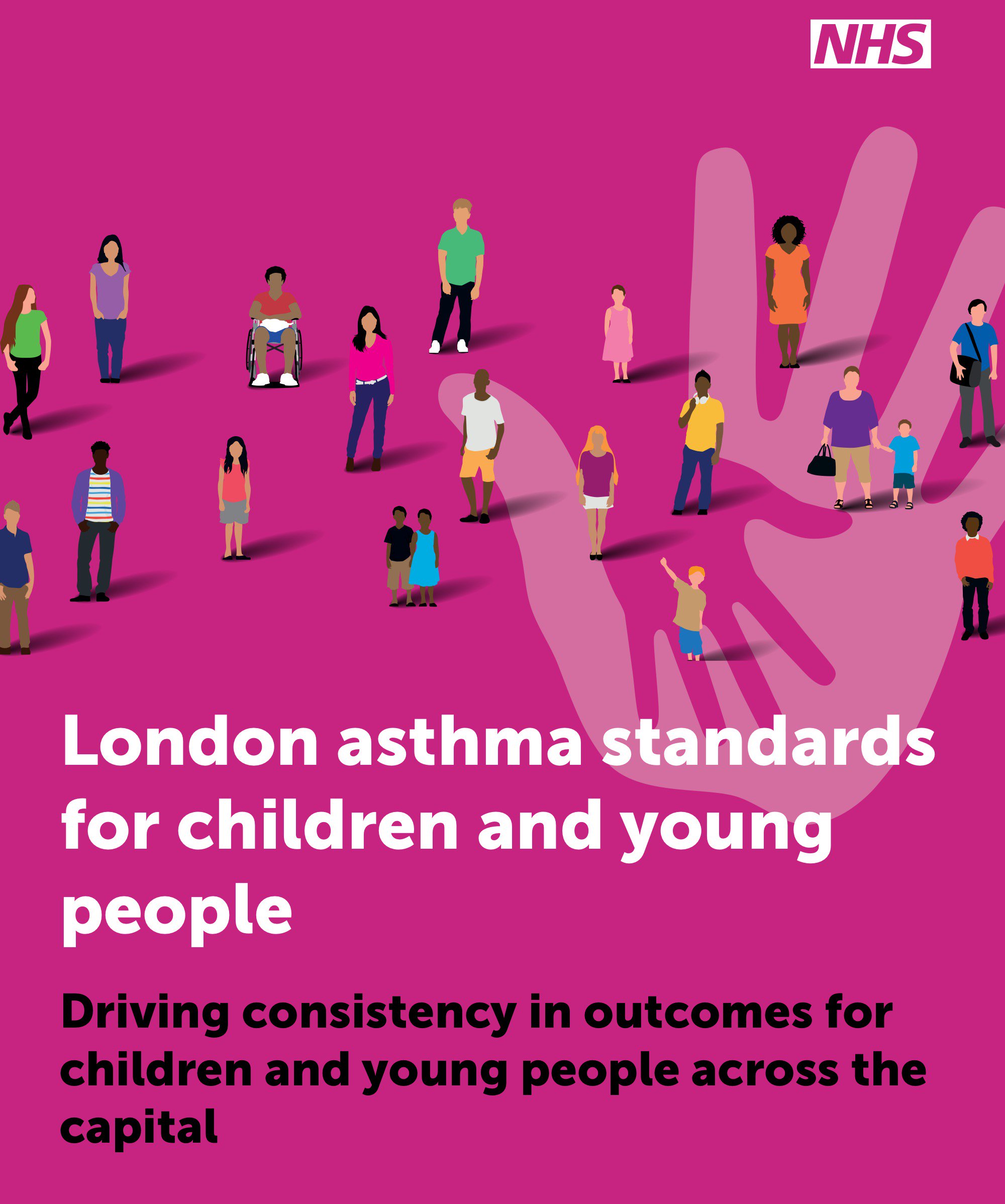The Children and Young People Programme was established to bring about transformational change in services for children and young people. One of the key pieces of work undertaken recently has been to identify a number of existing standards relating to the care of children and young people with asthma.
Asthma is the most common long term medical condition in children. It cannot be cured, but with appropriate management quality of life can be improved. The National Review of Asthma Deaths found deficiencies in routine care and treatment of asthma and lack of recognition of deterioration and management of attacks.
 A group of leading clinicians and commissioners from across the capital were brought together to develop a set of standards for care of children and young people with asthma and pre-school/viral induced wheeze to complement the existing London Quality Standards, Primary Care Commissioning Framework and Children and Young People’s Acute Care Standards.
A group of leading clinicians and commissioners from across the capital were brought together to develop a set of standards for care of children and young people with asthma and pre-school/viral induced wheeze to complement the existing London Quality Standards, Primary Care Commissioning Framework and Children and Young People’s Acute Care Standards.Currently there are many existing documents and guidance about asthma but despite this, children in London are still dying of acute asthma attacks and the basic standards are not being carried out. These standards bring together the aspirations for London, the NICE Asthma standards, British Thoracic Society guidelines and a number of other key resources into one document.
This document is not another set of guidelines, but brings together all the other documents to aid their implementation and help transform and drive up care for children with asthma or acute viral induced wheeze in London. It should improve diagnosis, management, and continuity of care, prescribing, monitoring and education across London. You can read and download the standards here
Development of the standards was informed through an extensive literature review and wide engagement that included primary and secondary care clinicians, managers, and commissioners from across London, views from professional bodies, and voluntary sector organisations. They have been endorsed by the Strategic Clinical Leadership Group, Commissioning Advisory Group and the Royal College of Physicians.
The standards outline a number of ambitions related to proactive accessible and co-ordinated care but most importantly each organisation (primary and community care, acute, care, pharmacy, schools) will have a clear named lead who will be responsible and accountable for asthma and the delivery of care. Utilisation of these standards by both commissioners and providers will start to reduce the enormous variation in outcomes that children and young people experience across the capital.
They will also act as a stepping stone towards the vision of Five Year Forward View and transformation of more local ‘place based’ care services for children and young people through the introductions of networks or communities of practice
The next steps is the launch of a toolkit and film on World Asthma day May 3rd to help organisations with the implementation of the standards. Watch this space!
https://www.myhealth.london.nhs.uk/healthy-london/children-and-young-people/resources
'Why asthma still kills' - The National Review of Asthma Deaths (NRAD) Confidential Enquiry report, May 2014. https://www.rcplondon.ac.uk/projects/outputs/why-asthma-still-kills

